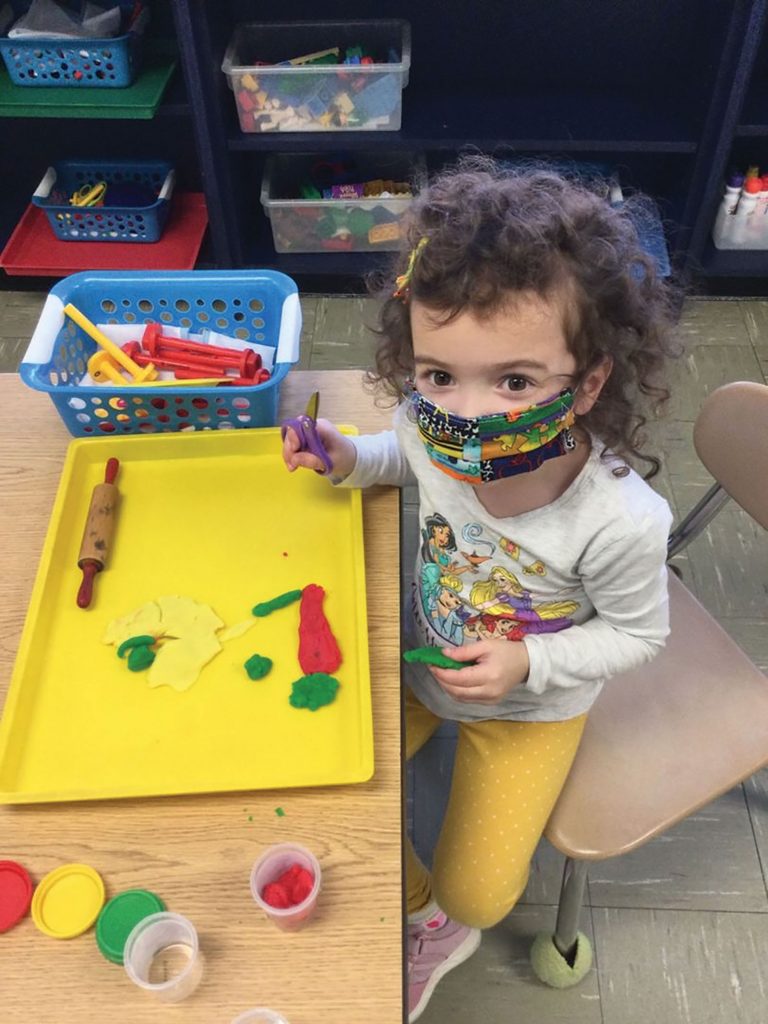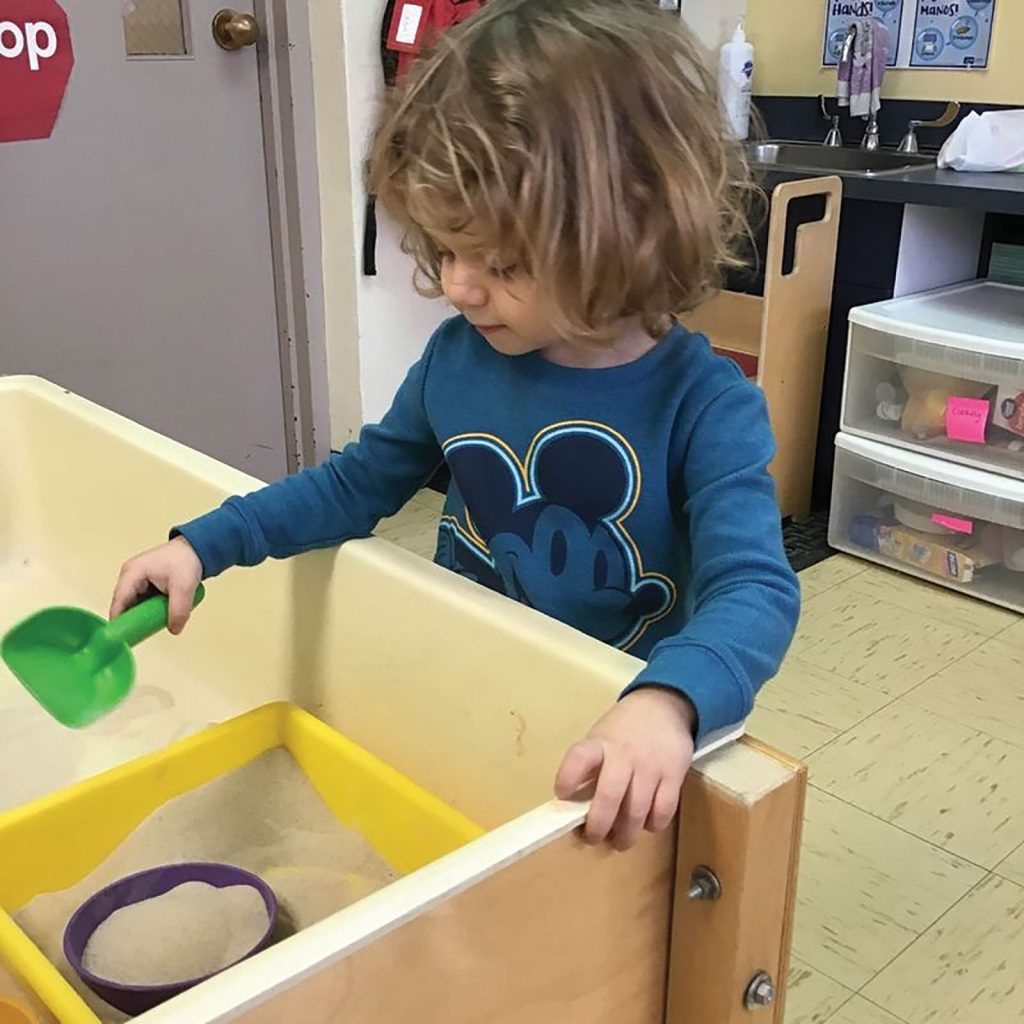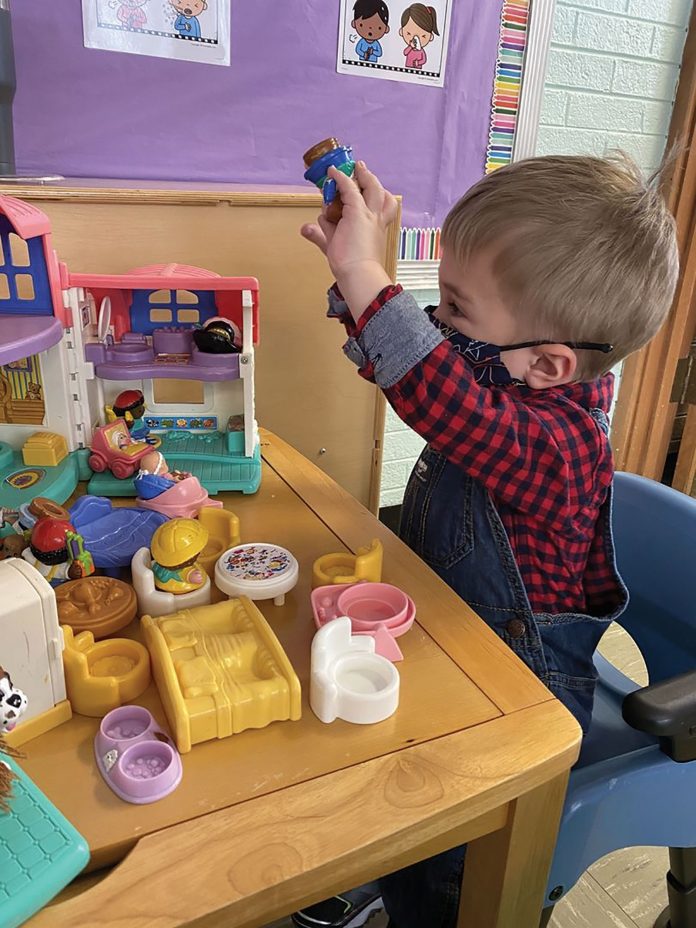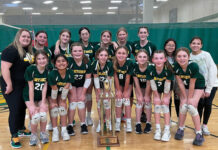
Play is one of the most important ways in which children gain essential knowledge and skills. For this reason, at the Early Learning Center, play opportunities and environments that promote play, exploration and hands-on learning are the core of our early childhood programming. Play is meaningful to children because through play, children make sense of the world around them and are able to express and expand their understanding of their experiences. Play is actively engaging and interactive. Through play, children become deeply involved, combining physical, mental, and verbal engagement, as well as learning to understand others through social interactions, communicate ideas, and build positive relationships.
At the Early Learning Center, children learn critical skills and develop as they play, including motor, cognitive, and social emotional skills. This occurs during our centers and choice times where children can try out new skills, participate in challenging cognitive tasks, and acquire knowledge through playful interactions with objects and people. For example, children engage in new social skills when they are sharing toys and agreeing on how to work together with materials, as well as, new cognitive skills when they are trying to figure out how to make a building with smaller blocks when larger ones are not available. They learn abstract concepts by playing with geometric shapes to learn that two squares can form a rectangle and two triangles can form a square. Through dance, they learn patterns such as step forward, step backward, twirl, clap, and repeat. Pretend play is especially beneficial because this is when children are able to express their ideas, thoughts and feelings, learn how to control their emotions, interact with others, and resolve conflicts.

At the Early Learning Center, we encourage families to celebrate PLAY! We see primary caregivers as children’s first teachers and they play an important role in creating the space for learning through play for their child at home and in the community in day-to-day experiences.
Many of us grew up with Mister Rogers as our television friend. He was known for his creativity, kindness, spirituality, and commitment to the well-being of children. He once said, “play is often talked about as if it were a relief from serious learning. But, for children, play IS serious learning. Play is really the work of childhood.” This is why we celebrate play; the real work of childhood.














